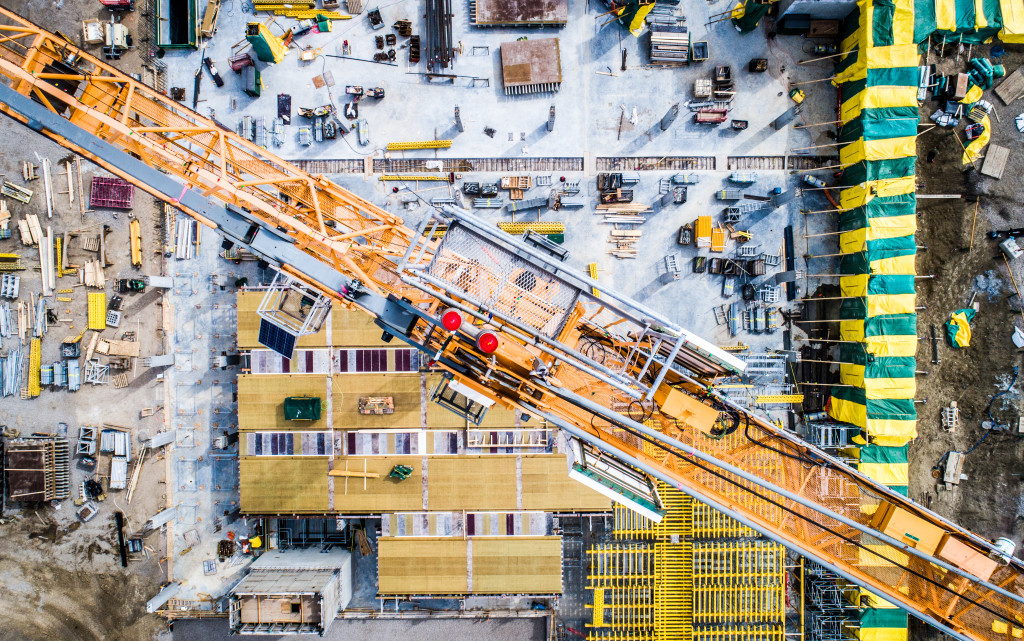- Construction project delays may stem from design errors, adverse weather, and logistic and material management issues.
- Effective waste management and labor contingency plans can significantly reduce potential construction delays.
- Financial factors like budget constraints and cash flow issues can be mitigated with comprehensive financial planning.
- Proactive identification of potential issues and contingency planning can keep construction projects on track.
Delay in construction projects has become a big concern in the construction industry. Construction delays can lead to a bad reputation, time overruns, and increased costs. As a construction firm, it’s essential to identify the factors that can cause delays in your projects so that you can avoid them. This blog will help you understand the factors that can cause delays in construction projects.
Design Errors and Changes

Design errors and changes are some of the significant factors that cause construction delays. The design changes may arise due to architectural, structural, or engineering issues. When these errors are not discovered or resolved early on during construction planning, they can result in project delays and increased costs. As a construction firm, it’s essential to take the necessary steps to identify the design requirements of your clients and make sure that the plan is well-detailed to avoid unnecessary design changes.
Weather Conditions
Extreme weather conditions like heavy rain or snow can delay construction projects. During the rainy season, the soil is moist, making it difficult to move heavy equipment and materials, resulting in project delays. In extreme cases, weather conditions can halt construction projects entirely. Construction firms should anticipate the potential weather delays and adjust their construction schedules accordingly to avoid time overruns.
Logistics and Materials Management
Construction projects require large quantities of materials and equipment, making it difficult to manage and coordinate logistic and material resources. Poor material management can lead to errors in material delivery, shortages, and damages. These issues can lead to significant project delays and increased costs. Construction firms should consider partnering with reliable suppliers and outsourcing logistics to specialists to avoid material shortages and delays.
Waste Management
Proper waste management is critical in construction projects. Failing to effectively manage and dispose of construction waste can lead to project delays due to potential safety hazards, site congestion, and environmental issues. Construction firms should establish strict protocols for waste management and ensure that all workers adhere to them.
You can also partner with a dumpster rental service to facilitate proper waste disposal and recycling, saving both time and money in the long run. They can provide dumpsters of various sizes and types, depending on your project needs. Choose a reputable company that provides efficient and eco-friendly waste management solutions.
Labor and Workforce Issues
Labor and workforce issues such as strikes, absenteeism, or shortages are inevitable in the construction industry. These issues can result in project delays and increased costs. To avoid any delays associated with labor and workforce, construction firms should have contingency plans in place in case of unexpected employee absences or a disruption in labor supply.
Financial and Funding Issues
Financial and funding issues such as budget constraints, delayed payment, or insufficient cash flow can cause project delays. These issues can be addressed by comprehensive financial planning. A solid financial plan should detail the following four things:
Project Costs

Project costs should be carefully estimated to avoid budget overruns. All costs, including labor, materials, and equipment, should be factored in when calculating project costs.
Project Timeline
A realistic project timeline should be established based on the scope of work and available resources. This timeline should also account for potential delays due to external factors like weather conditions and labor issues.
Contingency Plan
A contingency plan should be included in the financial planning to address any unforeseen delays or costs. This helps to ensure that the project can continue even when unexpected issues arise.
Cash Flow Management
Construction firms should manage their cash flow effectively to avoid delays due to insufficient funds. This includes regularly reviewing and adjusting payment schedules, securing adequate funding, and maintaining a buffer for unexpected expenses.
By having a well-defined financial plan in place, construction firms can mitigate any potential financial delays and keep their projects on track.
Various factors contribute to delays in construction projects, including design errors, weather conditions, logistical issues, waste management concerns, labor and workforce problems, and financial complications. However, these challenges can be mitigated with proper planning, effective communication, and efficient management.
By taking a proactive approach to identifying potential issues and formulating contingency plans in advance, construction firms can significantly reduce the likelihood of delays and keep their projects on track. Remember, prevention is always better than cure. Stay ahead of potential pitfalls, and your construction project will have a higher chance of success.
